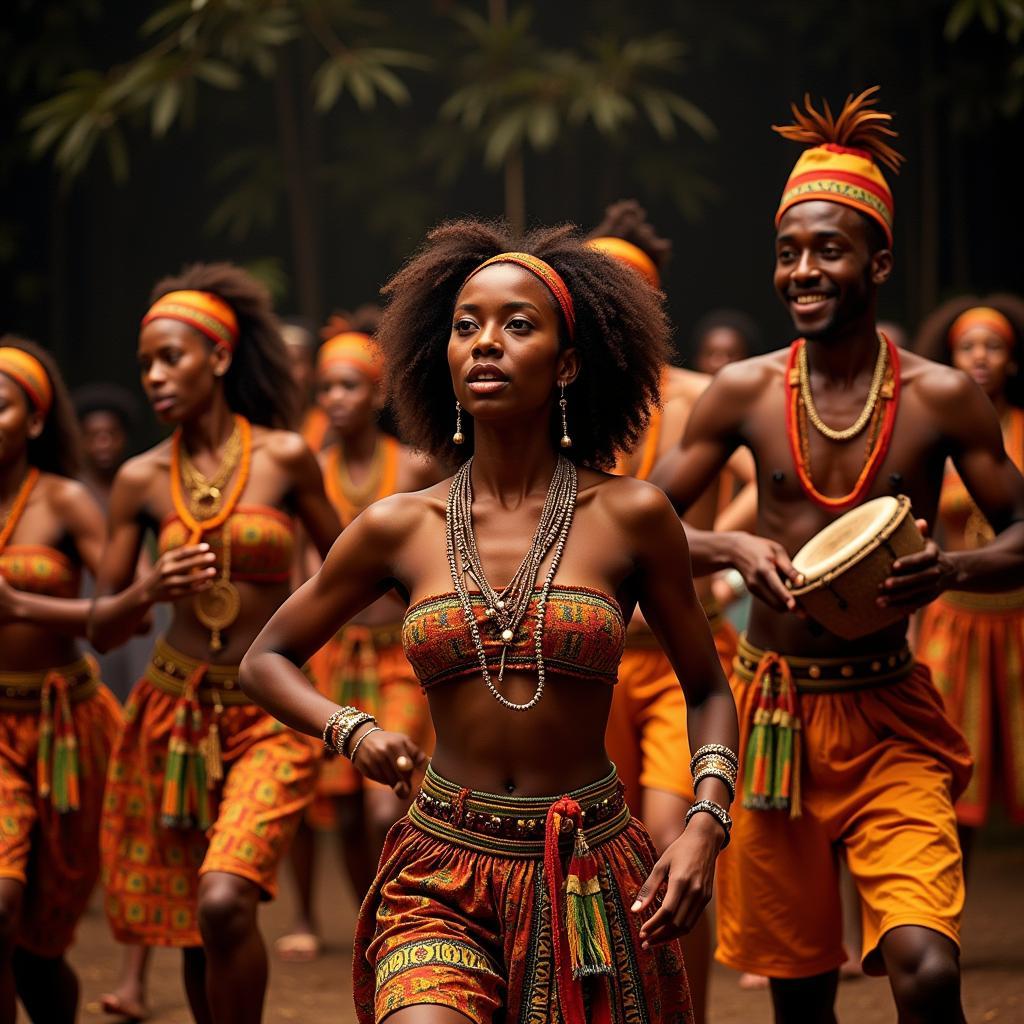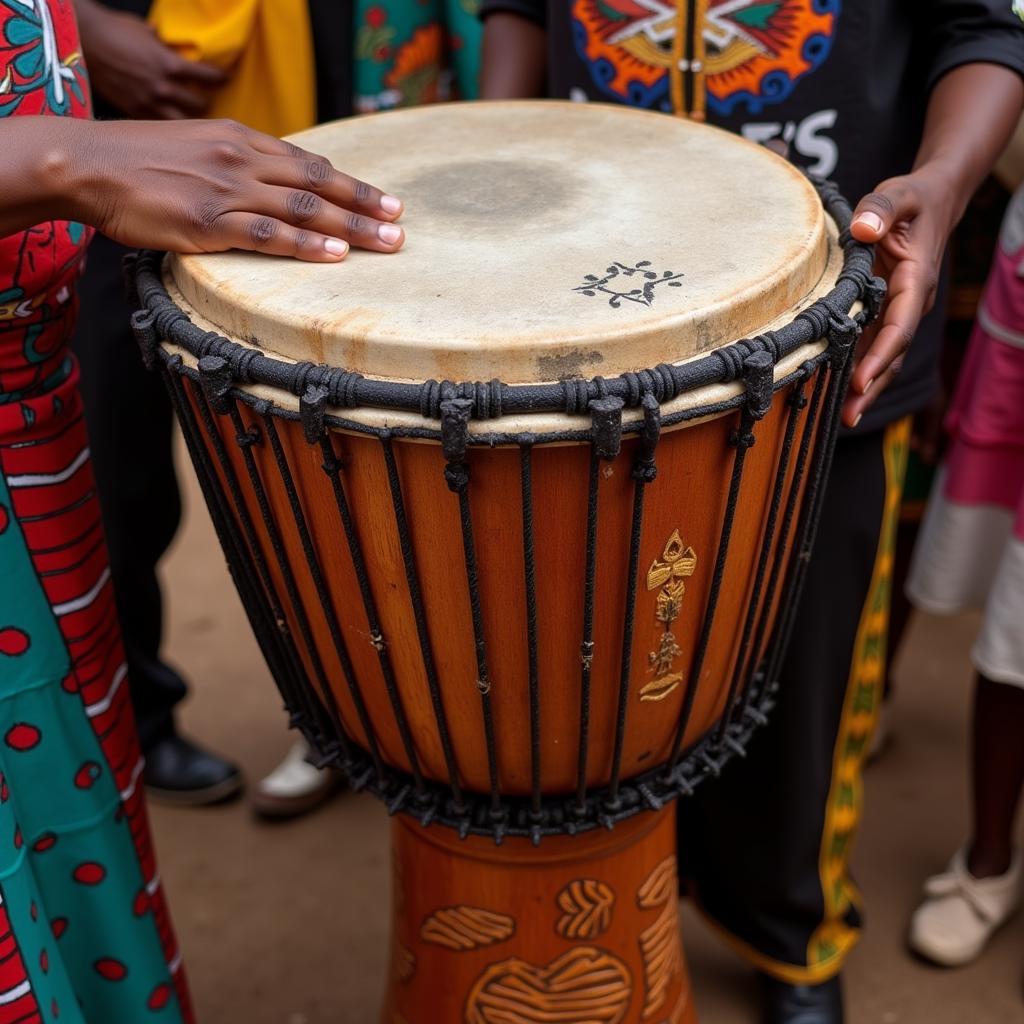Exploring the Rich Tapestry of African Culture Patterns
African culture, a vibrant mosaic of traditions, beliefs, and customs, offers a captivating journey for those seeking to understand the continent’s diverse heritage. From the rhythmic beats of traditional music to the intricate designs of indigenous art, African Culture Patterns reflect a rich tapestry woven over centuries, shaped by a myriad of influences. This exploration delves into the core elements that define these patterns, shedding light on the captivating world of African culture.
Family as the Cornerstone: Understanding African Social Structures
At the heart of African culture lies the paramount importance of family. Unlike Western societies, where individualism often takes precedence, African cultures emphasize the collective, with family serving as the bedrock of social organization. This extends beyond the immediate nuclear family to encompass extended relatives, ancestors, and even future generations.
This strong kinship network fosters a deep sense of belonging, shared responsibility, and mutual support. It influences decision-making, shapes social interactions, and provides a framework for transmitting cultural values and traditions across generations. For instance, many communities practice communal land ownership, emphasizing collective responsibility and resource management.
The Power of Oral Tradition: Preserving History and Values
In the absence of widespread literacy in the past, oral tradition emerged as a powerful tool for transmitting knowledge, history, and cultural values in Africa. Through storytelling, proverbs, songs, and folklore, generations have passed down their collective wisdom, ensuring the continuity of cultural heritage.
Skilled storytellers, often revered members of the community, weave intricate tales that entertain, educate, and instill moral values. Proverbs, concise and often metaphorical, convey wisdom and social commentary, serving as guides for daily life. Music and dance, integral to African cultural expression, often accompany storytelling, enhancing its emotional impact and memorability.
The Significance of Ancestral Spirits: A Bridge Between Worlds
Religion and spirituality are deeply intertwined with African culture patterns. While the continent is home to a diversity of faiths, including Christianity, Islam, and indigenous belief systems, a common thread is the reverence for ancestors.
Ancestral spirits are believed to hold significant influence over the living, acting as intermediaries between the physical and spiritual realms. This belief fosters a strong sense of continuity between the past, present, and future. Rituals, offerings, and consultations with spiritual leaders are common practices aimed at seeking guidance, protection, and blessings from ancestors.
The Language of Art: Expressing Cultural Identity
African art encompasses a diverse range of forms, from intricate wood carvings and vibrant textiles to elaborate masks and captivating sculptures. Each piece serves not merely as an aesthetic object but often carries profound cultural significance.
For instance, masks, often used in ceremonial dances and rituals, embody spirits, ancestors, or mythological figures. Textiles, often woven with intricate patterns and vibrant colors, can denote social status, clan affiliation, or mark special occasions. African arts and crafts uk offer a glimpse into this rich artistic heritage, showcasing the diversity and craftsmanship of African artisans.
The Rhythm of Life: Music and Dance in African Culture
Music and dance pulsate through the veins of African culture, serving as vibrant expressions of joy, sorrow, spirituality, and social commentary. From the polyrhythmic beats of West African drumming to the soulful melodies of South African choral music, each region boasts unique musical traditions.
Dance, often inseparable from music, plays a pivotal role in rituals, celebrations, and storytelling. Intricate movements and expressive gestures convey emotions, narratives, and cultural values, transcending language barriers. Attending a traditional African dance performance offers a captivating immersion into the continent’s rhythmic soul.
African Cuisine: A Fusion of Flavors and Traditions
African cuisine is as diverse as the continent itself, reflecting a rich tapestry of flavors, ingredients, and culinary traditions. From the spicy stews of West Africa to the fragrant tagines of North Africa, each region boasts unique dishes shaped by climate, geography, and cultural influences.
Staple foods include grains like millet, sorghum, and maize, often accompanied by flavorful stews, soups, and sauces made with vegetables, meat, or fish. Spices like ginger, turmeric, and chili peppers add depth and complexity to the cuisine. African fabric uk often feature patterns inspired by these culinary delights.
The Importance of Respect: Navigating Social Etiquette
Respect is a cornerstone of African social interactions. Elders, in particular, are held in high regard, and their wisdom and experience are valued. Greetings are often elaborate, involving inquiries about health, family, and well-being.
Hospitality is deeply ingrained in African culture, and visitors are often welcomed with open arms and offered the best a household can provide. Understanding these cultural nuances is essential for navigating social interactions with sensitivity and respect. African inspired jewellery uk often reflects these values, incorporating symbols and designs that represent respect, wisdom, and tradition.
Conclusion: Embracing the Diversity of African Culture Patterns
Exploring African culture patterns offers a captivating journey into a world rich in tradition, spirituality, and artistic expression. From the paramount importance of family and the power of oral tradition to the vibrant expressions of art, music, and dance, African culture patterns offer a testament to the continent’s enduring heritage.
Understanding these patterns not only provides insights into the African worldview but also fosters cross-cultural appreciation and respect. As we delve deeper into the intricacies of African culture, we uncover a tapestry woven with threads of resilience, community, and a deep connection to ancestral roots.
FAQs about African Culture Patterns
1. What are the dominant religions in Africa?
While Africa boasts a diversity of faiths, Christianity and Islam are the two most widely practiced religions on the continent. Indigenous belief systems, often characterized by ancestor worship and a strong connection to nature, also continue to thrive in many regions.
2. What is the significance of music in African culture?
Music is not merely entertainment in Africa but serves as a powerful tool for communication, storytelling, and social commentary. It accompanies rituals, celebrations, and daily life, expressing a wide range of emotions and cultural values.
3. How does African art reflect cultural beliefs?
African art often transcends aesthetic beauty, serving as a visual language that conveys cultural beliefs, spiritual values, and social norms. Masks, sculptures, textiles, and other art forms often embody spirits, ancestors, or mythological figures, playing integral roles in rituals and ceremonies.
4. What are some key values in African culture?
Respect, especially for elders, is paramount in African culture. Other essential values include community, hospitality, and a strong emphasis on family and kinship ties.
5. How can I learn more about specific African cultures?
Many resources are available for those seeking to deepen their understanding of specific African cultures. Books, documentaries, museums, and cultural centers offer valuable insights into the continent’s diverse heritage. African evening dresses uk provide a glimpse into the fashion traditions of different African cultures. Visiting local African craft shops in london can also offer insight into craftsmanship and cultural significance.
Exploring Further: More Insights into African Culture
For a deeper dive into the captivating world of African culture, consider exploring these aspects:
- The role of women in traditional African societies
- The impact of colonialism on African culture
- The evolution of African music and dance forms
- The significance of traditional healing practices
- The challenges and opportunities facing contemporary African art
Need Help Navigating the World of African Culture?
Reach out to our team for personalized guidance and support. Contact us at:
Phone: +255768904061
Email: [email protected]
Address: Mbarali DC Mawindi, Kangaga, Tanzania
Our dedicated team is available 24/7 to assist you with any inquiries or requests.


